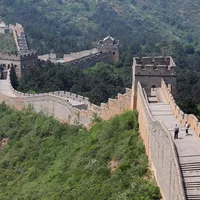62 今天 不能 买
彼得 要 买 一个 录音机 *。 这个 商店 的 录音机 很多 : 有大有小 , 有贵 的 , 也 有 便宜 的 。 山本 对 彼得 说 :“ 你 喜欢 哪种 ? 那个 大 的 怎么样 ? 一个五百 二十三 块 ; 这个 小 的 , 又 便宜 又 好 , 一个 三百 八 十六块 。 你 买 大 的 还是 小 的 ? ” 彼得 对 山本 说 :“ 这些 录音机 都 很 好 , 可是 我 今天 不能 买 。 我 只有 七十块 钱 , 钱 不够 。
Używamy ciasteczek, aby ulepszyć LingQ. Odwiedzając stronę wyrażasz zgodę na nasze polityka Cookie.

彼得 要 买 一个 录音机 *。 这个 商店 的 录音机 很多 : 有大有小 , 有贵 的 , 也 有 便宜 的 。 山本 对 彼得 说 :“ 你 喜欢 哪种 ? 那个 大 的 怎么样 ? 一个五百 二十三 块 ; 这个 小 的 , 又 便宜 又 好 , 一个 三百 八 十六块 。 你 买 大 的 还是 小 的 ? ” 彼得 对 山本 说 :“ 这些 录音机 都 很 好 , 可是 我 今天 不能 买 。 我 只有 七十块 钱 , 钱 不够 。
To hear audio for this text, and to learn the vocabulary sign up for a free LingQ account.